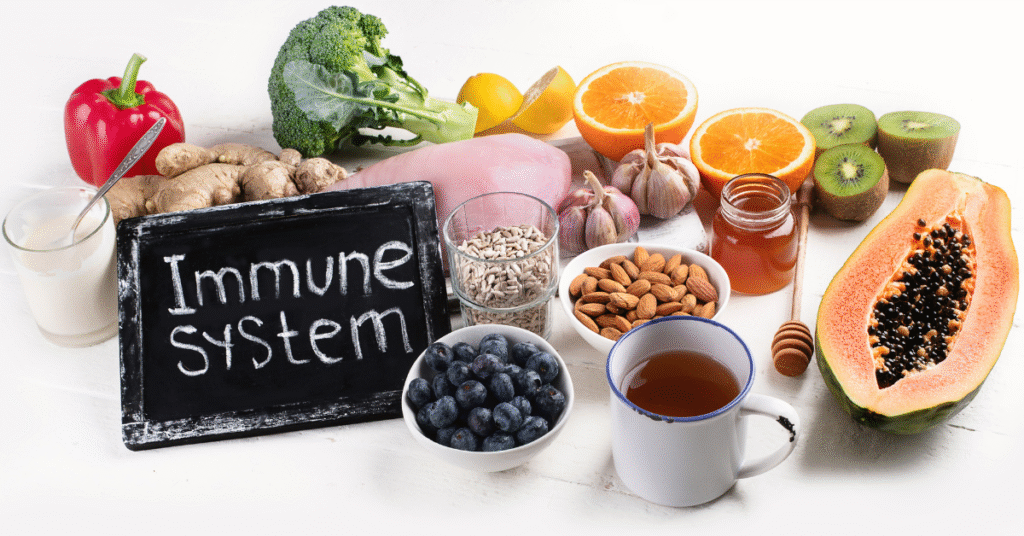Sarah never expected pregnancy to bring an unexpected challenge: persistent, irritating dandruff. As her body underwent hormonal transformations, her scalp became increasingly sensitive. White flakes appeared unexpectedly during her most precious months of anticipation.
Pregnancy triggers significant changes in your body, and your scalp is no exception. Many expecting mothers experience dandruff due to hormonal changes. These changes increase oil production and skin cell growth. The quest for safe, natural remedies for dandruff becomes crucial during this delicate time.
Understanding the root causes of dandruff during pregnancy can help you develop effective dandruff treatment at home. The Malassezia Globosa fungus, which affects about 50% of individuals, plays a significant role in scalp irritation. Pregnancy-safe dandruff solutions can help you manage these uncomfortable symptoms without compromising your health or your baby’s well-being.
Key Takeaways
- Hormonal changes during pregnancy can trigger dandruff
- Natural remedies are safer than chemical treatments
- Scalp health is crucial during pregnancy
- Diet and nutrition impact scalp condition
- Stress management can help reduce dandruff symptoms
- Gentle hair care is essential for managing scalp issues
- Consulting healthcare providers is recommended for persistent dandruff
Understanding Dandruff During Pregnancy
Pregnancy changes your body in many ways, including your scalp. Many expectant mothers get dandruff because of hormonal shifts and body changes.
Hormonal Changes and Scalp Health
During pregnancy, your body goes through big hormonal changes. These changes affect your scalp health. Hormones can make your scalp produce more oil and skin cells.
- Estrogen levels surge, affecting oil production
- Increased skin sensitivity develops
- Immune system responses become more complex
Common Causes of Pregnancy Dandruff
Dandruff during pregnancy is often caused by hormonal changes, a sensitive scalp, and immune system changes. These factors can make your scalp produce more oil and may lead to fungal growth.
| Dandruff Trigger | Pregnancy Impact |
| Hormonal Changes | Increased sebum production |
| Immune System | Reduced defensive capabilities |
| Product Sensitivity | Higher scalp reactivity |
How Pregnancy Affects Your Scalp
Pregnancy changes your scalp a lot. Hormonal changes and dandruff are closely linked. High cholesterol levels can help microbes grow. Bile acids can also irritate your scalp and make it flake more.
It’s important to take care of your scalp during pregnancy. Drink plenty of water, eat well, and use gentle hair products. This can help manage these changes.
Natural Remedies for Dandruff and Their Safety During Pregnancy
A serene and peaceful scene depicting a pregnant woman gently massaging her scalp in a natural setting, surrounded by lush greenery and soothing herbal plants, soft sunlight filtering through leaves, emphasizing a sense of tranquility and wellness, focused on scalp health and natural remedies, warm color palette.
Dealing with dandruff during pregnancy can be tough. But there are safe ways to keep your scalp healthy. Natural treatments are gentle and don’t use harsh chemicals.
Your scalp needs extra care when you’re pregnant. Hormonal changes can affect your skin. So, finding the right natural treatments is key. These options help keep your hair healthy and reduce irritation.
- Apple Cider Vinegar: A diluted solution can help balance scalp pH and reduce dandruff
- Aloe Vera: Contains anti-inflammatory properties that soothe the scalp
- Coconut Oil: Provides moisture and helps combat dry, flaky skin
Studies show natural ingredients can fight dandruff. For example, about 50-100% of adults have Malassezia yeast on their scalp. This yeast can cause dandruff. Essential oils like tea tree oil can help by reducing sebum and easing symptoms.
| Natural Remedy | Benefits | Application Method |
| Galangal Extract | Anti-fungal, antibacterial | Diluted scalp treatment |
| White Vinegar Rinse | pH Balance Restoration | Dilute 1:4 with water |
| Tea Tree Oil | Reduces Sebum Production | Mix with carrier oil |
Always talk to your healthcare provider before trying these scalp care methods. Some important things to remember are:
- Use natural remedies in moderation
- Perform a patch test before full application
- Avoid essential oils in high concentrations
- Watch for any skin reactions
More than 70% of people now choose natural hair care. These treatments are safe and popular. Always listen to your body and get help if scalp problems don’t go away.
Essential Hair Care Practices for Expecting Mothers
Keeping your scalp healthy during pregnancy is key. Hormonal changes can affect your hair and scalp. So, it’s important to use special hair care tips for pregnant women.
Pregnancy can make your hair and scalp different. About 60% of pregnant women see changes like dryness, oiliness, or more dandruff. Here are some tips to prevent dandruff during pregnancy:
- Choose sulfate-free, pregnancy-safe shampoos
- Use gentle, natural hair care products
- Avoid harsh chemical treatments
- Maintain a nutrient-rich diet
Your hair care should be gentle and support your scalp. Use mild, pregnancy-appropriate hair products with good ingredients like:
| Ingredient | Benefits |
| Shea Butter | Intense moisturization |
| Coconut Oil | Scalp hydration |
| Argan Oil | Nutrient-rich conditioning |
Managing stress is also important for your scalp health. Try gentle scalp massages and relaxation to help. This can improve blood flow and lower dandruff risk.
Here are some tips to protect your hair during pregnancy:
- Drink at least 2 liters of water daily
- Eat a balanced diet with vitamins A, B, C, and omega-3 fatty acids
- Use a wide-toothed comb for gentle detangling
- Limit heat styling to prevent hair damage
By following these hair care tips, you can keep your hair healthy and beautiful during motherhood.
Conclusion
Managing pregnancy dandruff is easier than you think. Hormonal changes affect your scalp, but you can handle it. Safe dandruff treatment at home includes natural remedies and gentle care.
Pregnancy scalp care is all about being holistic. Stress can make dandruff worse, but managing it can help. Apple cider vinegar can also help with itching and flaking.
Don’t worry; dandruff during pregnancy is temporary. Eating foods rich in omega-3 fatty acids can help your scalp. Stay hydrated, manage stress, and be patient. Gentle, natural care will help you through this time.
FAQ
Is dandruff common during pregnancy?
Yes, dandruff is common during pregnancy. Hormonal changes make your scalp oilier. This can lead to dandruff.
The changing hormones also make your scalp more sensitive. This makes it prone to flaking.
What causes dandruff during pregnancy?
Hormonal changes and more oil on your scalp cause dandruff. Your scalp becomes more sensitive and flaky.
A fungus called Malassezia Globosa can also play a role. It breaks down scalp oil, causing flaking and itching.
Are natural remedies safe for treating dandruff during pregnancy?
Many natural remedies are safe in moderation. Apple cider vinegar, aloe vera, and coconut oil are good options. They can soothe your scalp and reduce flaking.
But always talk to your healthcare provider before trying new treatments.
How can I prevent dandruff during pregnancy?
Eat a healthy diet with omega-3 fatty acids, zinc, and vitamins A, B, and C. Use gentle, safe dandruff shampoos.
Avoid harsh hair treatments and manage stress. Scalp massages with natural oils can help too.
For a variety of content focused on natural and herbal remedies for various healthcare concerns, please visit: Pure Remedy Solutions




More Stories
Health News Highlights for a Better Tomorrow
Fresh Health News to Keep You Informed
COVID Censorship: What We Weren’t Told